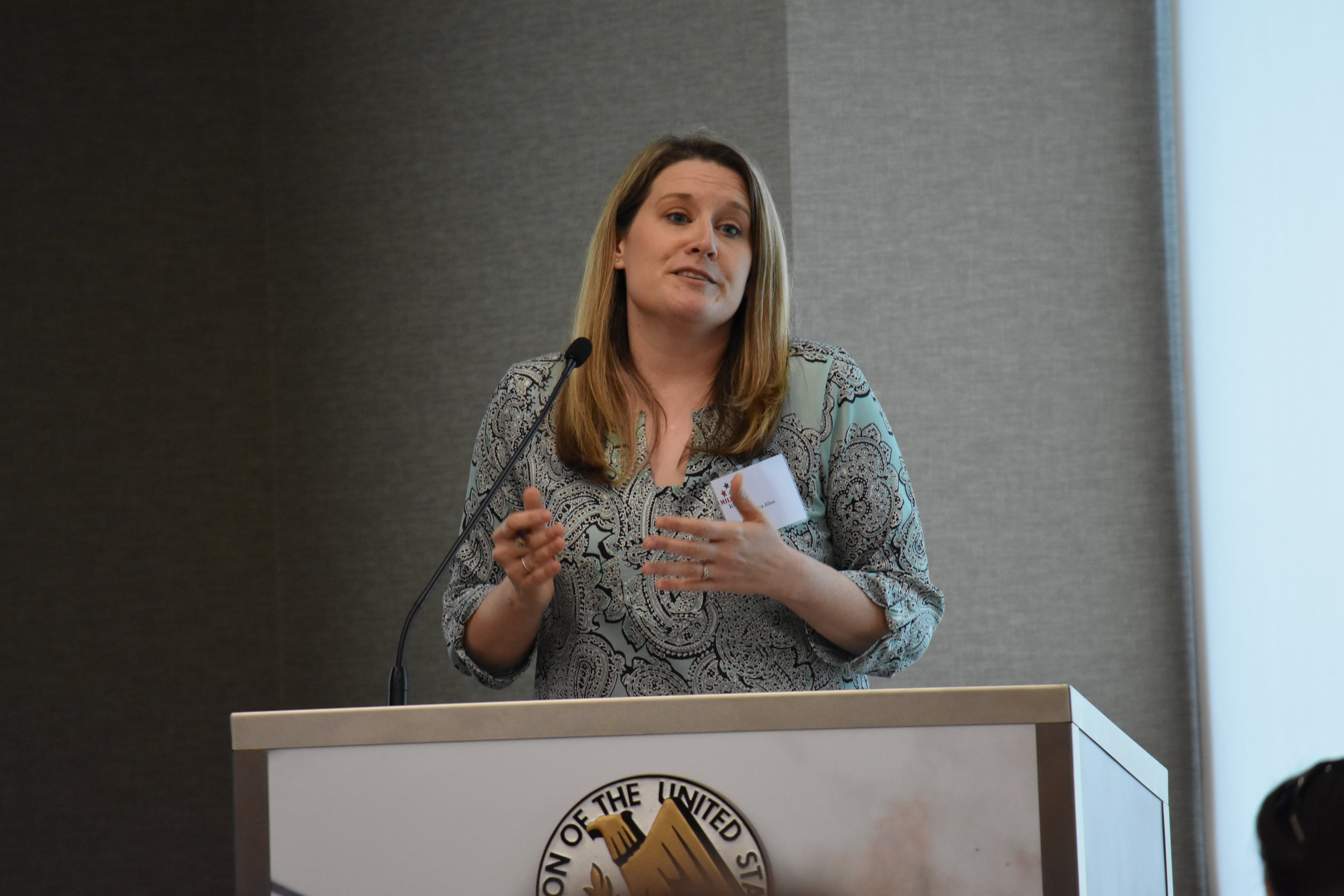In the period after their military parent’s injury, children had spikes in medical visits due to maltreatment, for mental health care, for injuries, and they had increased use of psychiatric medications, according to new research analyzing data on their doctor visits and prescriptions.
These children also had fewer visits for preventive care after their parents’ injury. Overall, the findings provide new, data-based understanding that a military parent’s wounds, illness or injury has an adverse impact on children – and that all those who are caregivers or who work with these children need to be aware, said Elizabeth Hisle-Gorman, lead author of the study published in the August edition of the journal Health Affairs. She’s an associate professor of pediatrics at the Uniformed Services University of the Health Sciences.
If caregivers, pediatricians, school personnel, coaches and others understand this, she said, “perhaps we can help provide intervention for these children earlier, so that the negative effect of a serious parental illness would be more mitigated.”
But there’s a notable exception in the findings. The data didn’t show the negative effects -- at least in terms of medical visits -- for children of those whose wounds or injuries were combat-related. They noted this was a “surprising and welcome” finding. In children of combat-injured troops, rates of visits for maltreatment, mental health care, and injury didn’t differ significantly after the injury, compared to the two years before the injury.
There are various possible reasons for this finding, but part of that may be limitations in the data. It’s likely that combat-related injuries were under-counted, because some may have been mis-classified as non-combat-related injuries in the database used for comparison, especially PTSD and TBI, which may not be diagnosed immediately. Of the 272,211 military parents who had been injured, ill, or wounded in the time frame studied, 1,333 were flagged in the database as being combat injured.
Regardless of the relation to combat, this data is a “call to action to get everybody mobilized to address this issue,” said Karen Ruedisueli, deputy government relations director of the National Military Family Association. It substantiates what advocates have been hearing anecdotally about parents’ concerns about the mental health of children of injured parents, she said.
The researchers studied medical visits of 485,002 children of 272,211 military parents who had been injured, ill or wounded in the years 2004 to 2014. The children were ages 2 to 16 at the time of the parent’s injury. Researchers compared the number of visits in the two years before the parent’s injury with the two years after the parent’s injury.
They used data from a Military Health System database of all health care provided to military members and their families through Tricare, including information on all inpatient and outpatient care at civilian and military health care facilities, and data on all outpatient prescriptions. They matched it with military parents identified in the Military Health System database on ill, injured and wounded.
Among the findings about children of these parents in the two years after the injury, compared to the two-year period before:
- Children whose parent had PTSD, whether by itself or with TBI, appeared to have more pronounced changes in their health care patterns.
- Visits related to child maltreatment increased by about 40 percent after the parent’s injury, with more pronounced differences in children of parents with TBI (38 percent), PTSD (68 percent), and those with both TBI and PTSD (152 percent). Visits for maltreatment didn’t increase significantly for children of physically injured parents.
- Visits for mental health care increased by about half.
- Visits for child injuries increased by 9 percent.
- The number of psychiatric medication days increased.
- Visits for preventive care decreased by about 20 percent. “Preventive health care may be forgotten or deemed less important by families coping with parental injury,” researchers wrote. “Neglect of preventive care may be indicative of increased family need and should be noted by pediatric providers.”
RELATED

The lesser effects on children of combat-injured parents may be attributed to various reasons, such as increased mental health care during the pre-injury deployment period. Thus, the differences might not have been as pronounced because children were experiencing the same patterns in treatment before the injury, due to deployment-related needs. But researchers didn’t have deployment dates of the service members to compare for the years before the injury.
Another possibility is that some of these parents may not have taken their children in for needed care after the parent’s injury.
But the better outcomes for these children--at least, based on medical visits -- may also stem from the services’ specialized warrior care programs for service members who have been seriously injured in combat. These programs provide extensive care at large military health care facilities to these service members and their families, with frequent contact, case management, mental health screening and care, and family assistance and support programs.
The research findings may suggest that programs similar to those for the combat-injured might lessen the risks for all children of injured parents, researchers stated. Hisle-Gorman said more research on those programs is needed.
The issue extends far beyond these families, said Ruedisueli, to the departments of defense and veterans affairs, to nonprofits, schools, and all others who interact with military children. It’s important to ease the caregiver parent’s burden, so that they have the ability to make sure their kids are getting the care they need.
“If a family doesn’t have enough time to get a child to a preventive medical appointment, what are the chances that if that child is struggling in school, that the family has the ability and the time to address that issue?" she said.
“If it’s not addressed, what does that mean for that child’s future? It’s not just about making sure we’re trying to salvage their childhoods, it’s also about making sure their futures are considered.”
Karen has covered military families, quality of life and consumer issues for Military Times for more than 30 years, and is co-author of a chapter on media coverage of military families in the book "A Battle Plan for Supporting Military Families." She previously worked for newspapers in Guam, Norfolk, Jacksonville, Fla., and Athens, Ga.





